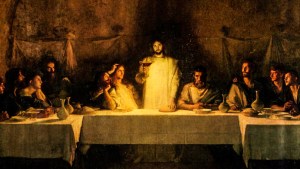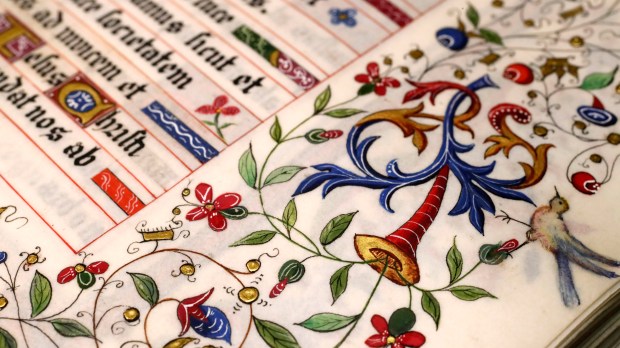To say that everyone should read the Bible is not an unreasonable demand. But it isn’t necessarily an easy task.
Certainly, it needs to be read with proper guidance, in a good translation, preferably in an annotated edition, with an acute awareness of the many literary genres it contains and the contexts in which these texts were written, edited, and collected. Guides to the Bible are definitely a help to anyone seeking to read it.
Biblical illiteracy has been on the rise for at least a decade. A 2021 survey found that only 11% of Americans read the Bible daily. The numbers, of course, vary by demographic: Millennials are most likely to have never read the Bible, while those over age 70 are the most frequent readers.
This has not always been the case. As Josh Jones notes in this article, “even famous atheists like Christopher Hitchens, Richard Dawkins, and Melvyn Bragg have argued for teaching the Bible in schools” as an essential historical document, and not just in faith-based contexts.
Interestingly, atheists and agnostics often score higher on surveys of religious literacy than most believers: They tend to read the Bible more carefully, even if their motives for reading it have to do with, for example, the kind of contributions to literary culture found in the King James version.
Understanding typology
A typically Christian way to read the Bible (and a relatively easy one) implies looking for what is known as types.
Typology stands out as a remarkable means of revealing the divine plan of redemption, as it brings together seamlessly the Hebrew Scriptures and the Gospels.
Typology, often referred to as “figurative foreshadowing,” involves interpreting certain persons, events, or objects in the Hebrew Bible as foreshadowing or prefiguring their fulfillment in the Gospels. These “types” are seen as shadows or glimpses of the ultimate reality, the “antitypes,” found in the person of Jesus Christ.
From a Christian perspective, the Hebrew Bible is full of types ultimately pointing at Jesus Christ. Consider these (rather evident) examples:
Adam: The first man brought sin into the world. Jesus, the second Adam, brought salvation and restored mankind’s original relationship with God. (Romans 5:14)
Moses: Moses, the liberator of Israel from slavery in Egypt, foreshadowed Jesus, the liberator of mankind from the slavery of sin and death. (Hebrews 3:1-6)
Passover lamb: The Passover lamb sacrificed on the eve of the Exodus foreshadowed Jesus, the Lamb of God. (1 Corinthians 5:7)
Tabernacle: The tabernacle, a portable sanctuary built by the Israelites in the wilderness, foreshadowed Mary (the first dwelling of God Incarnate) and, in the eschatological scheme of things, also the definitive heavenly sanctuary, the perfect dwelling place of God, which Jesus entered as High Priest. (Hebrews 9:11-12)
But there are many, many more: Joseph of the Old Testament, Jonah three days in the whale, Rachel interceding for her people, and countless others.
Importance of typology
Typology is a powerful tool for Christians who seek to understand the unity and continuity of the Bible. It helps us see the overarching narrative of salvation history, connecting the promises of the Hebrew Bible with their fulfillment in Jesus Christ. In recognizing types, we gain a deeper appreciation for the richness of the Hebrew Scriptures and the centrality of Christ.
The Catholic Church has a rich tradition of typological interpretation of the Bible. Early Church Fathers such as Origen and Augustine recognized the importance of typology and used it extensively in their writings.
Today, typology continues to be a valuable tool for Catholic biblical interpretation, helping us to understand the Abrahamic tradition in light of Christ and the Gospels.



